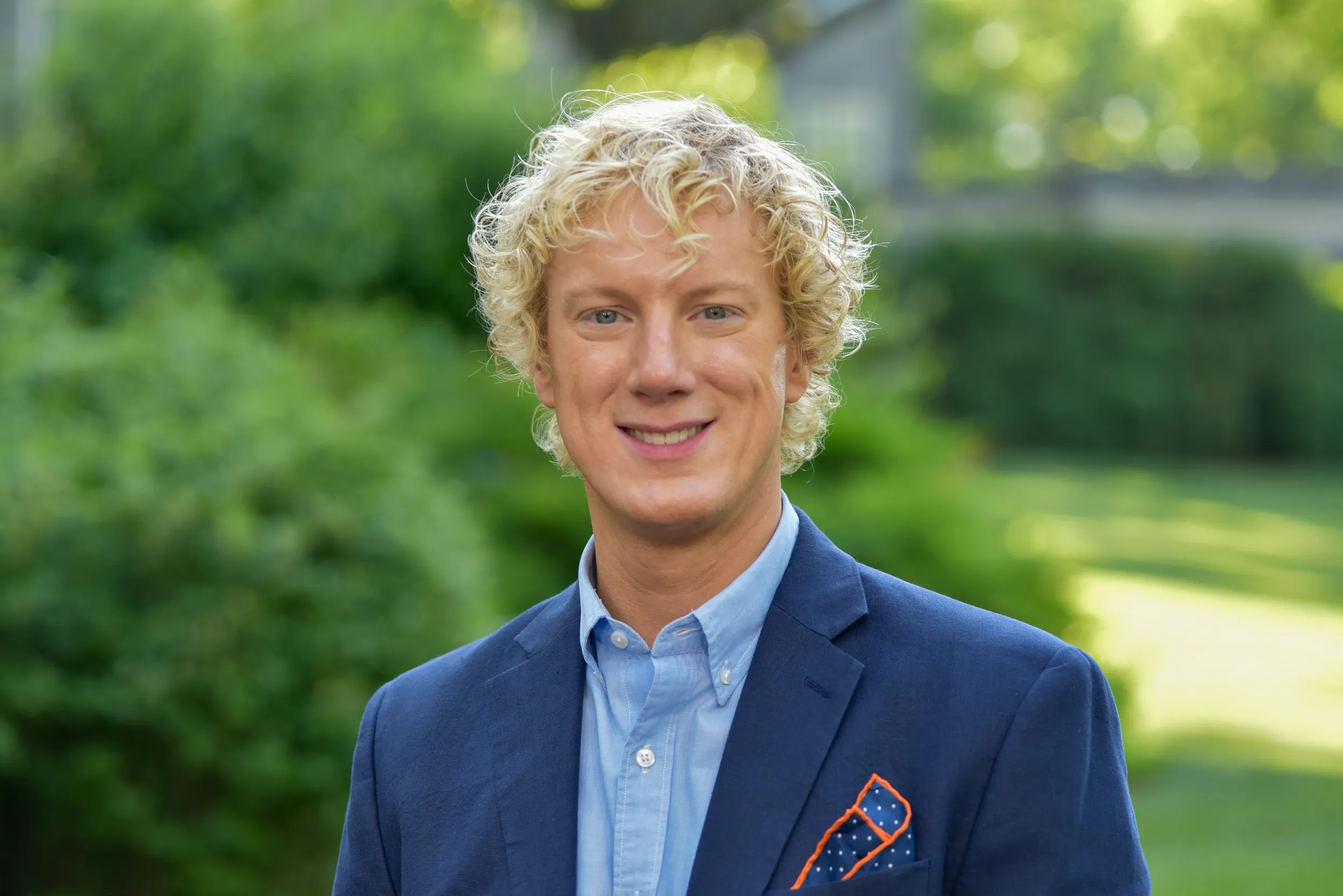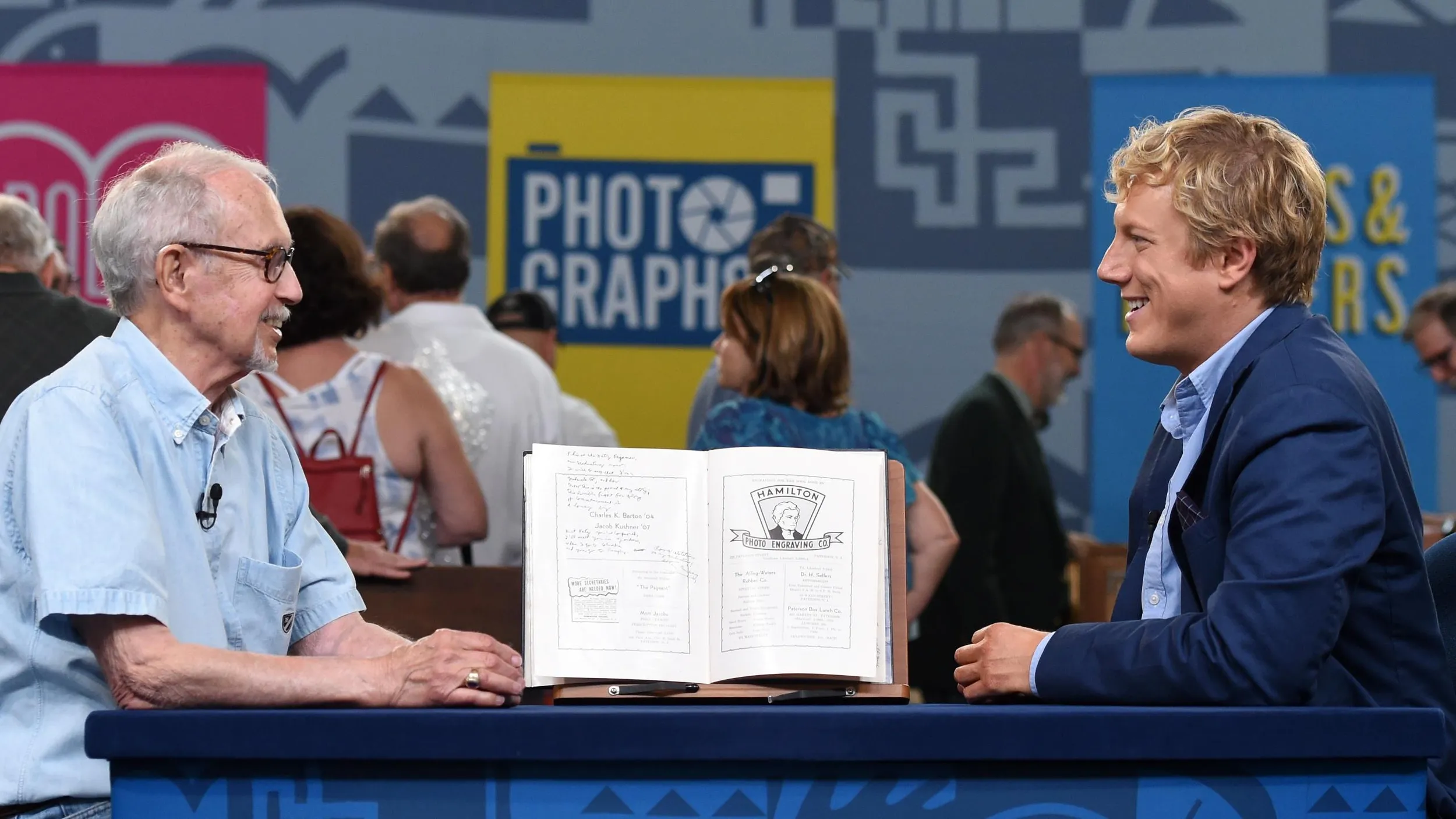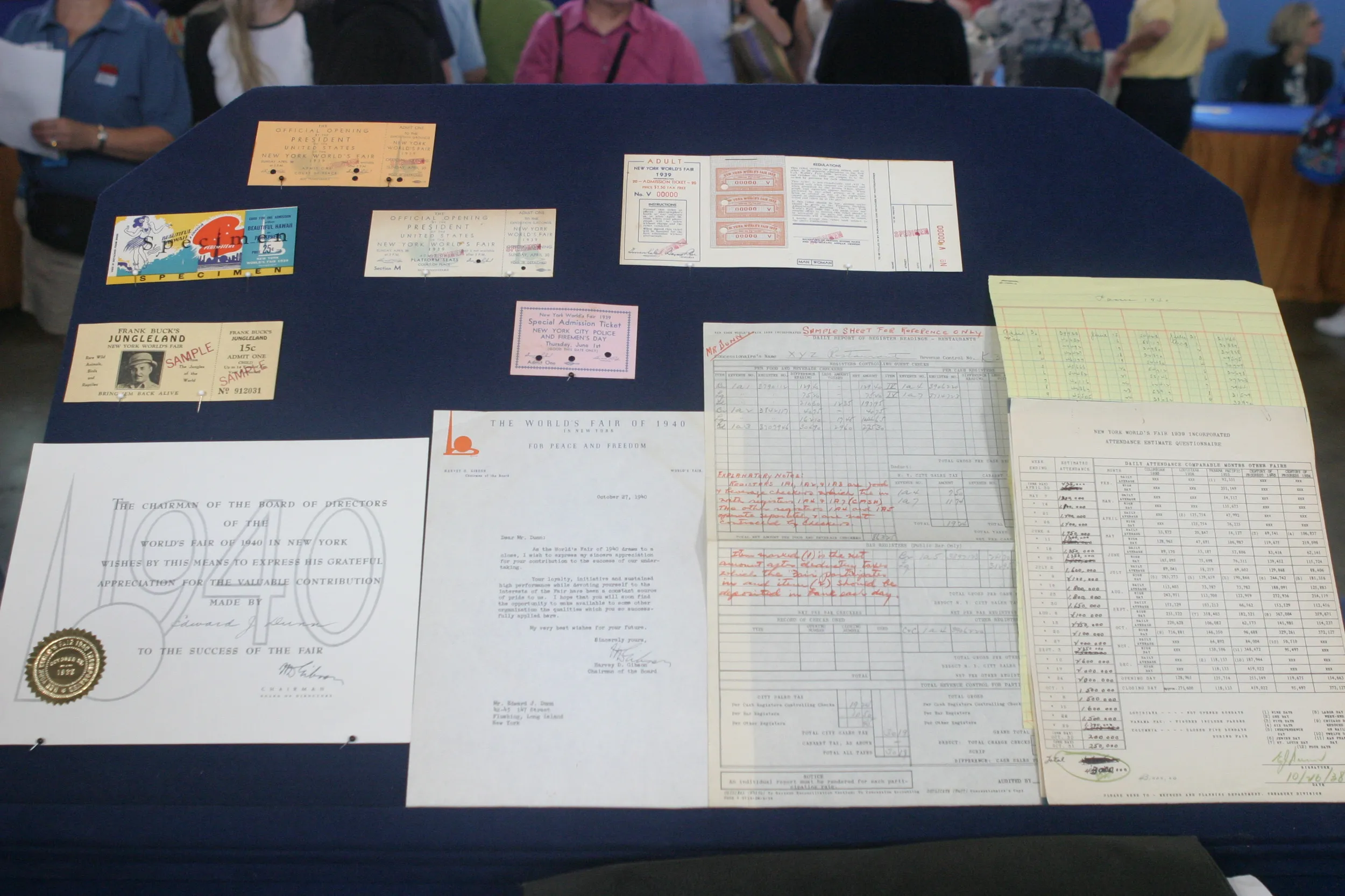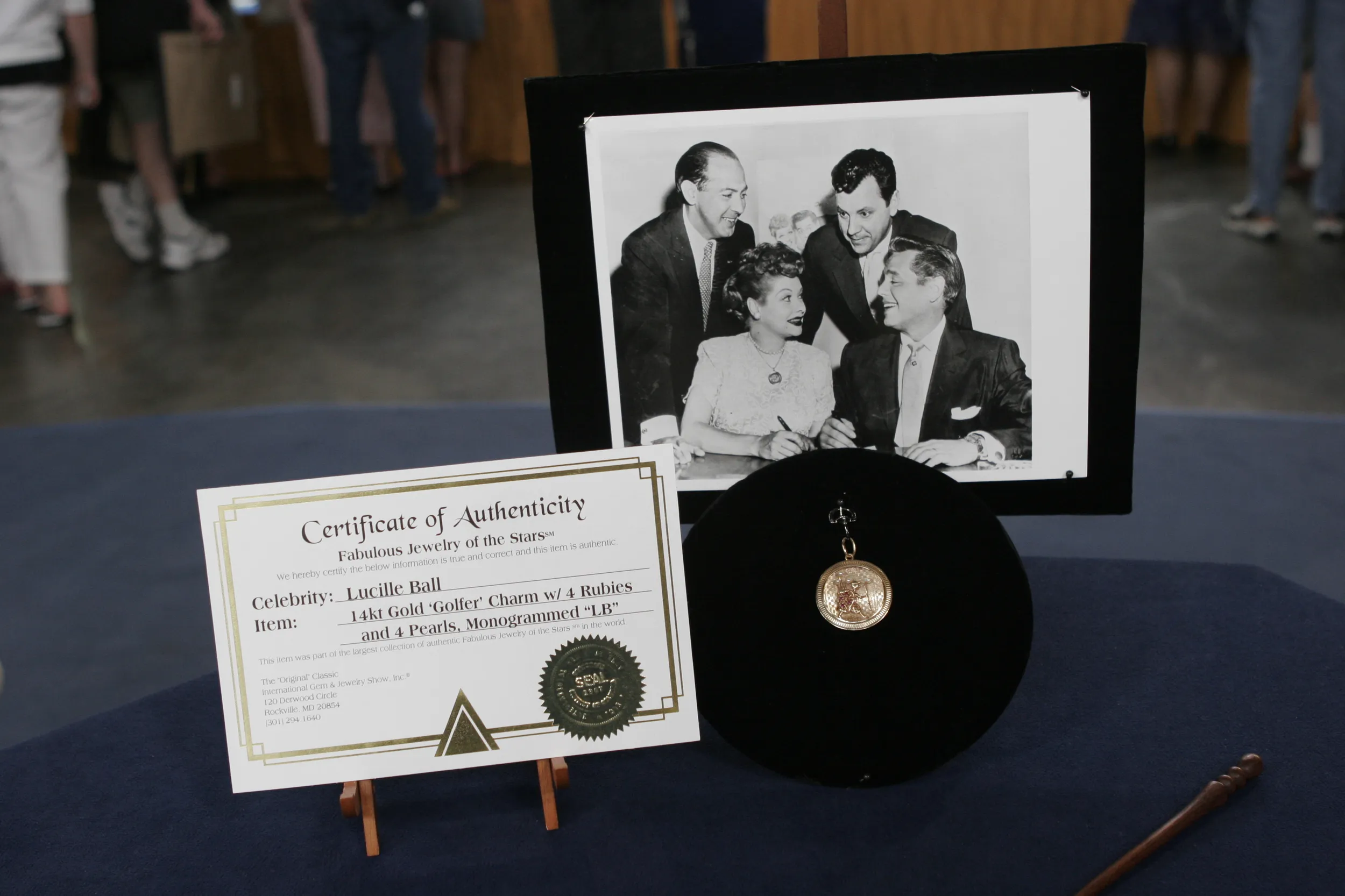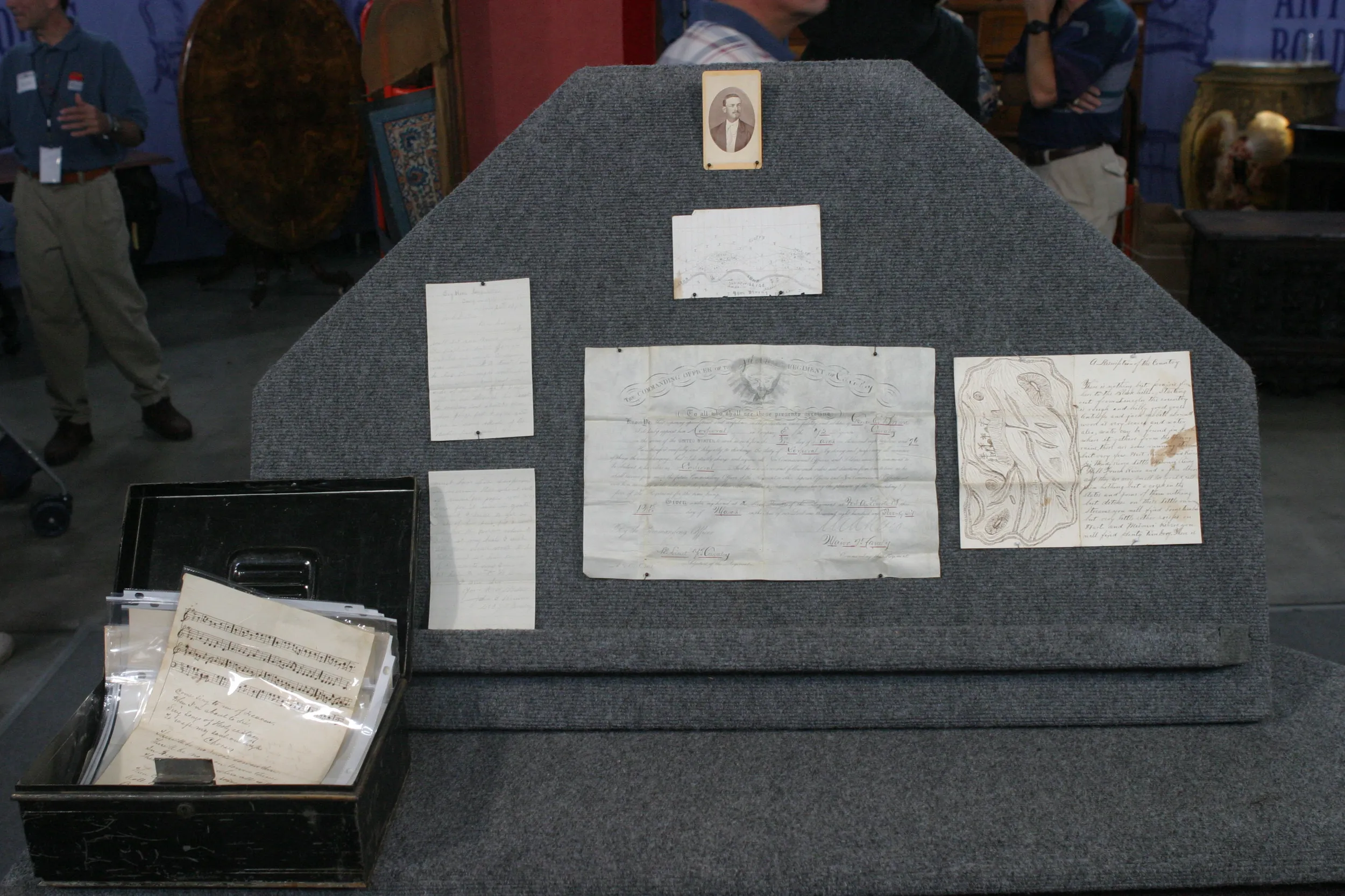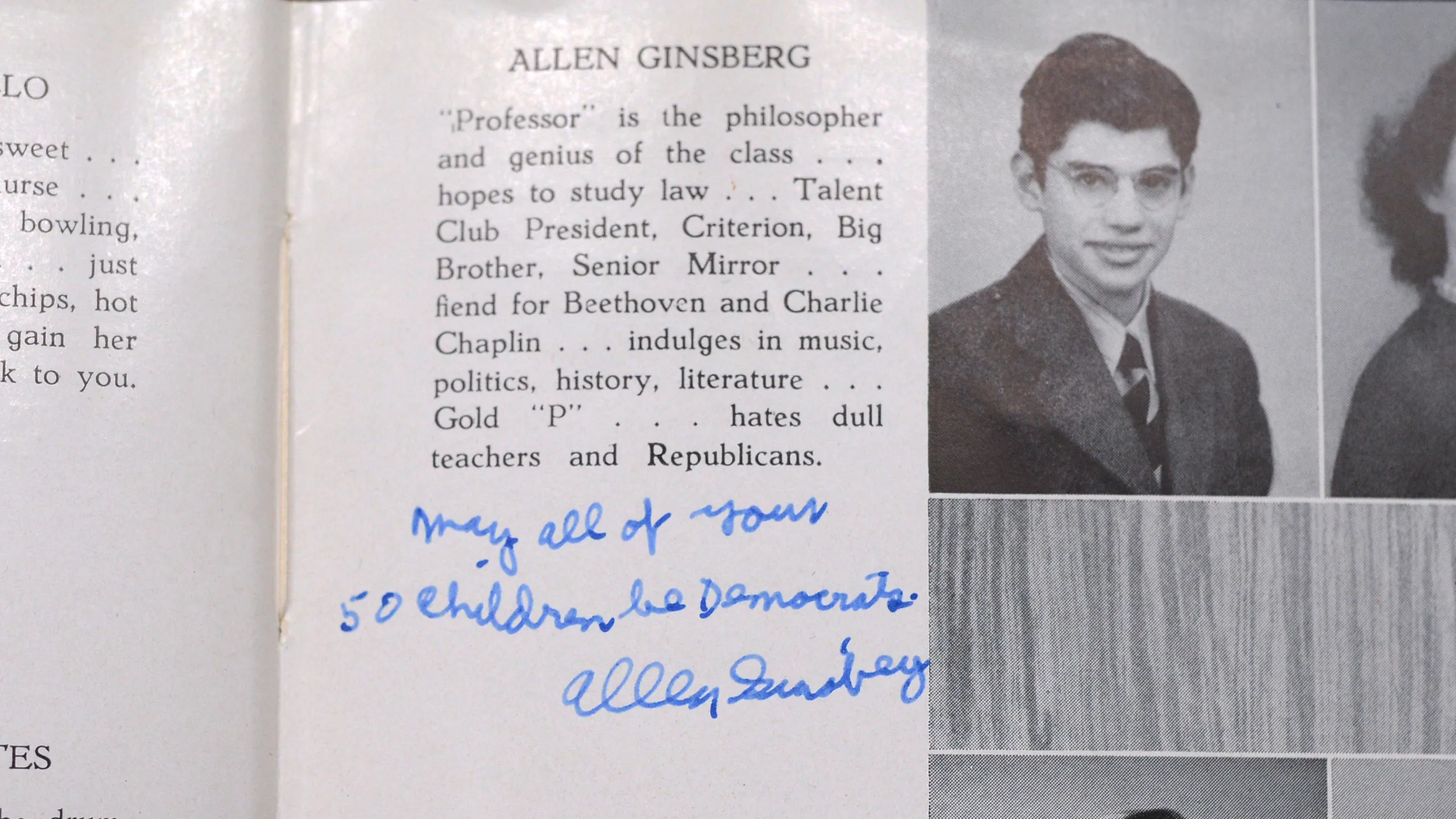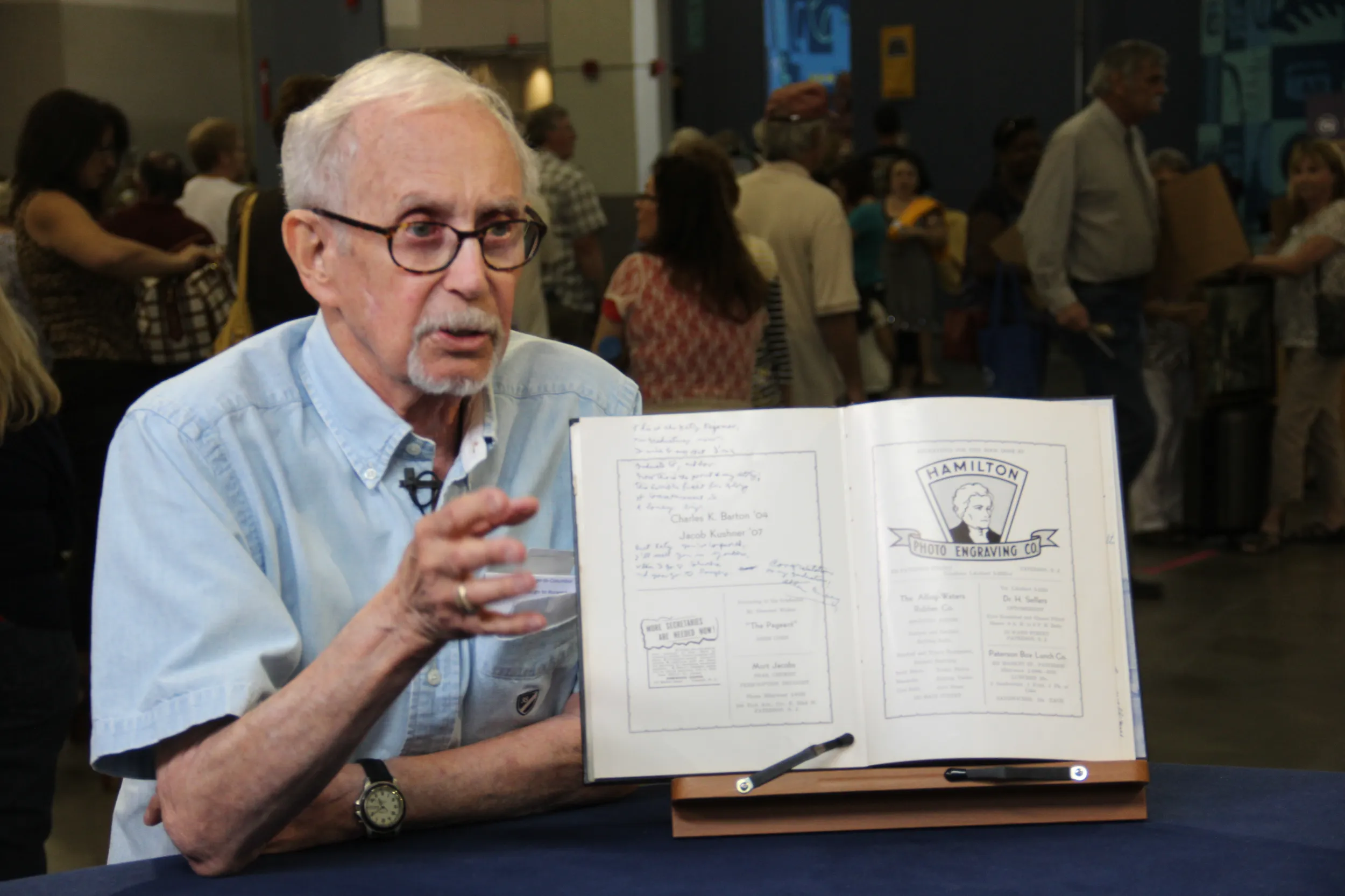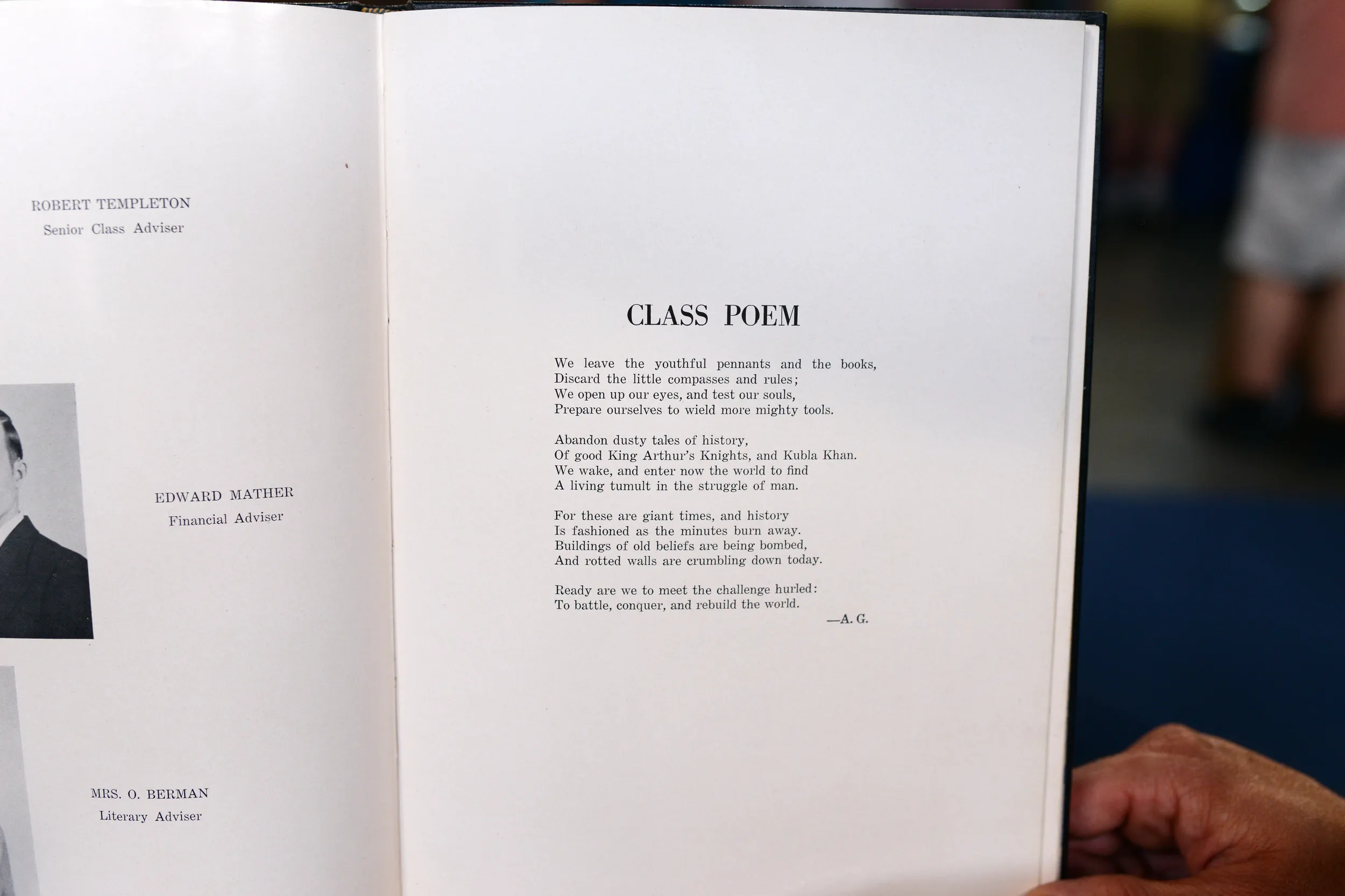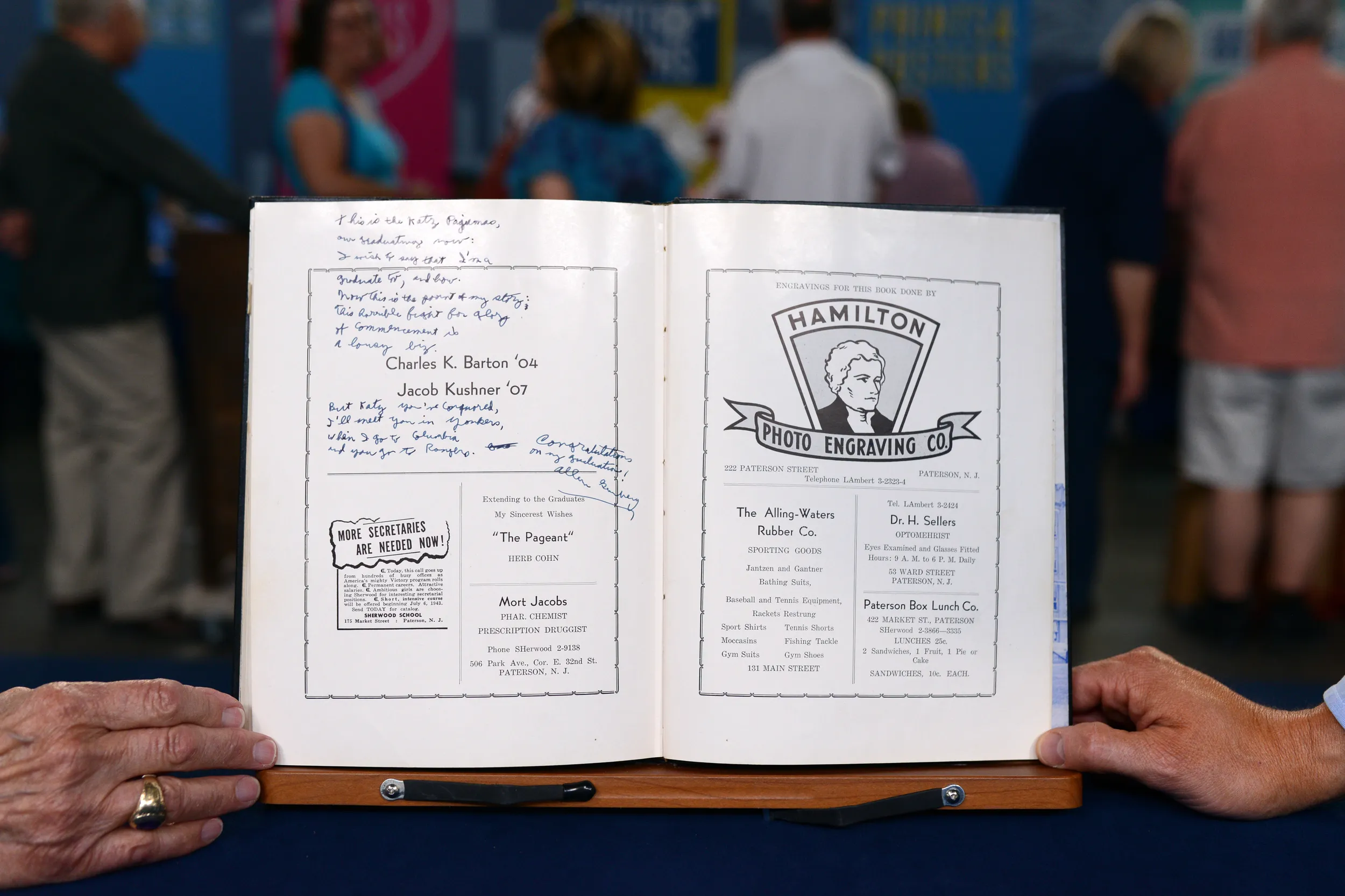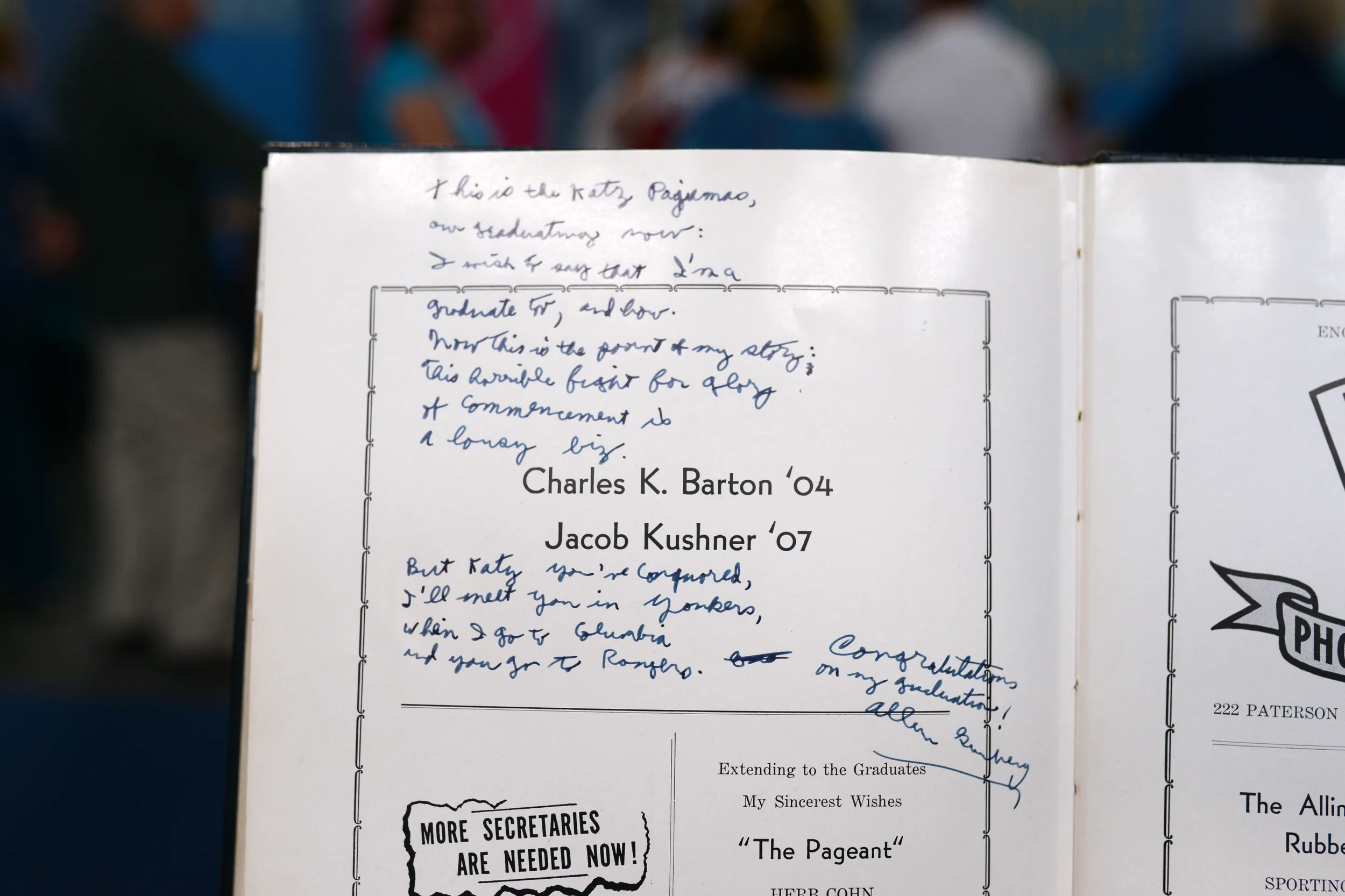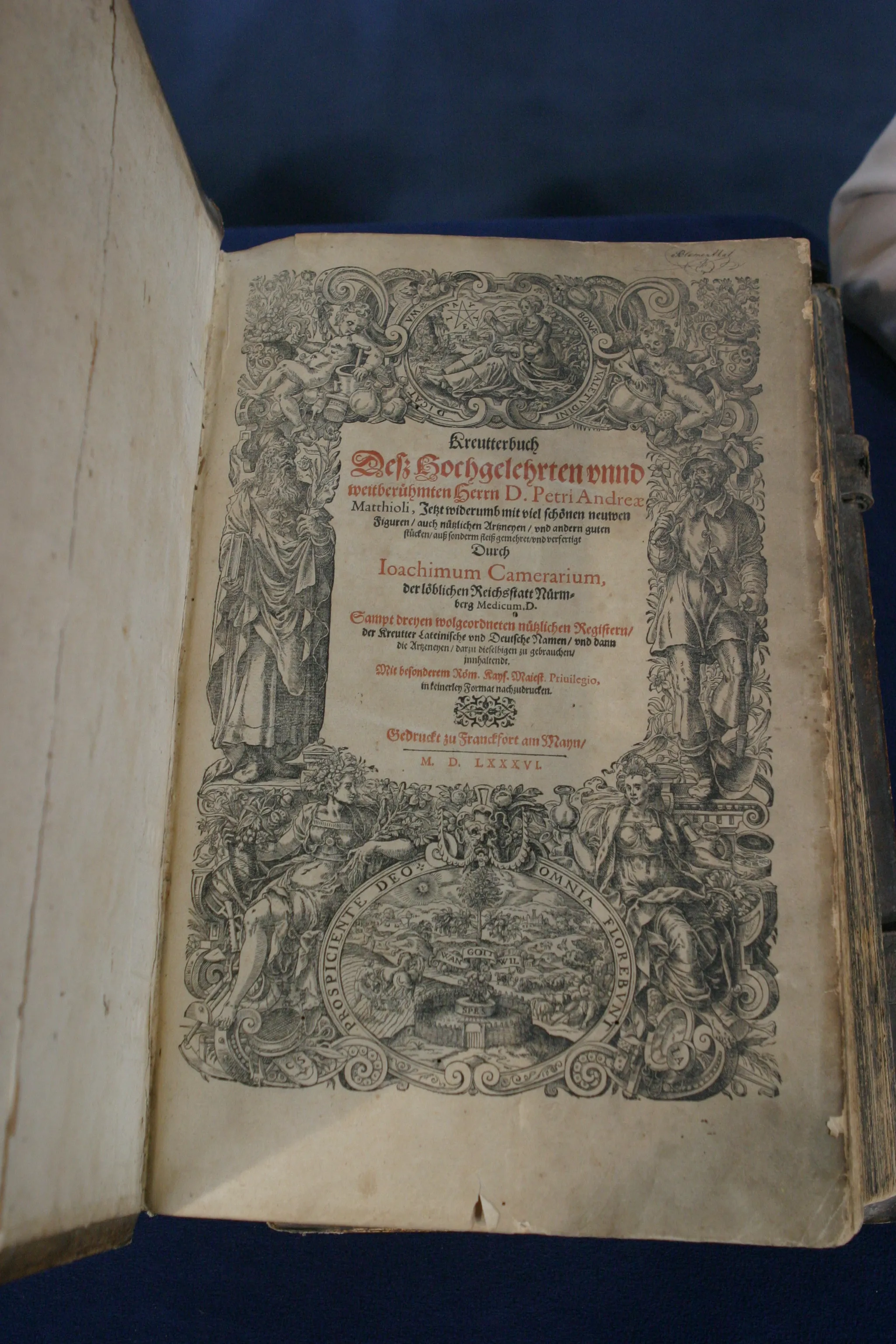GUEST: I brought you a senior graduating yearbook from the class of '43, for Eastside High School, Patterson, New Jersey. In it, I'm proud to say, was one of our students, one of our friends, one of my friends, was Allen Ginsberg.
APPRAISER: So you were friends with Ginsberg throughout high school and you graduated with him?
GUEST: Right, and I had no indication he would go on to do those wonderful things that he did, become as famous as he did, but he was just a nice guy to pal around with.
APPRAISER: So, here we have Allen Ginsberg's senior portrait. He inscribed to you, "May all your 50 children be Democrats-- Allen Ginsberg." Can you tell me, was that an inside joke between you and he?
GUEST: Not really, but I know his tendencies were Democratic, and I was 48 short of his goal, but…
APPRAISER: I even have to read here what it said about Ginsberg in high school. Among many other things, it said, he's called "professor" and he's the "philosopher and genius of the class." Was that true at the time?
GUEST: That he was.
APPRAISER: And then it even goes on to say, "He hates dull teachers and Republicans." So even back then he was political, it sounds like.
GUEST: He was. The poems that he did write, it was always some sort of a... slightly rebellious attitude that he had.
APPRAISER: Already anti establishment, right. So, Ginsberg was your class poet!
GUEST: Class poet-- right.
APPRAISER: It's a great class poem. I really like the last line, which I think is very inspiring, and it says, "Ready are we to meet the challenge hurled: To battle, conquer, and rebuild the world."
GUEST: Right, that's typical Allen, right.
APPRAISER: And then, on a little bit more fun note, and kind of, I think, showing signs of the Ginsberg he was to become, he writes you a personal message in the back. Can you tell me the story behind getting that from him?
GUEST: Well, we all started, got our yearbooks, and everybody's signing everybody's yearbook, and he grabbed mine, he started writing and writing and writing, and I said, "Allen, you're defacing my yearbook. Give me back my yearbook!" When he finished, lo and behold, he wrote this, this is the "Katz Pajamas," my name being Katz. I thought it was kind of humorous, put it aside. It wasn't till I spoke to my niece, oh, a couple months back. She said her daughter, my grandniece, is studying the beatnik generation, and I said, "Well, gee, I'm a member of the beatnik generation. In fact, I have one of the honchos as my classmate." I photographed the poem, sent it to her, and I became an instant hero for her daughter.
APPRAISER: Had you had the yearbook out?
GUEST: The yearbook has been in a closet for maybe 70 years now, 72 years.
APPRAISER: He wrote to you, "this is the 'Katz' pajamas, our graduating now, I wish to say that I'm a graduate, too, and bow. Now this is the point of my story, this horrible fight for glory of commencements is a lousy biz."
GUEST: There you go!
APPRAISER: Then he wrote, "But Katz, you've conquered, I'll meet you in Yonkers, when I go to Columbia and you go to Wrongers."
GUEST: Well, it was a takeoff on Rutgers, which I didn’t go, but.
APPRAISER: And then he wrote, "Congratulations on my graduation, Allen Ginsberg."
GUEST: Yeah, he was very droll.
APPRAISER: So after he wrote this, did you stay in contact with Ginsberg?
GUEST: Not really. However, about a month or two later I was going for a job interview in New York City and he happened to be on the bus also, and we, both of us, gravitated to the back of the bus and we had a nice conversation, and then we hadn't seen each other in 50 years until our reunion, and everybody was waiting for Allen to come in, and he did and with a smile on his face, and it was nice talking with him. There was nothing put on about Allen.
APPRAISER: As we know, he went on to become, as you said, one of the main honchos of the Beat Generation, along with William S. Burroughs and Jack Kerouac, and I think this is just such an interesting early look at who he was going to become. As a signed yearbook, by Ginsberg, just the signature with the fun saying and his photograph, I would have said, a retail value of about $1,000.
GUEST: That's nice.
APPRAISER: But, we don't just have a signed yearbook, we have a yearbook with an early Ginsberg poem. He's 17 years old, he's about to go off to Columbia, and I think with this additional poem he wrote to you, I think this would retail for $10,000.
GUEST: Oh, my God! Well, maybe it's not going back in the closet, I don't know.
